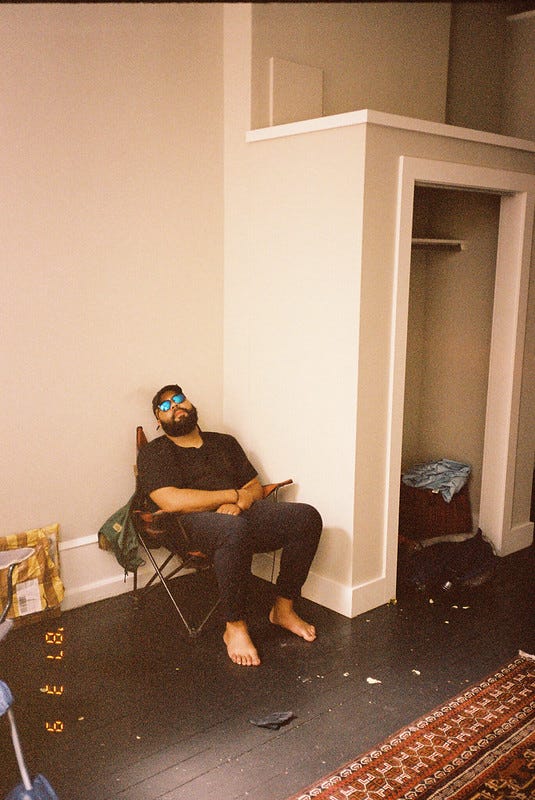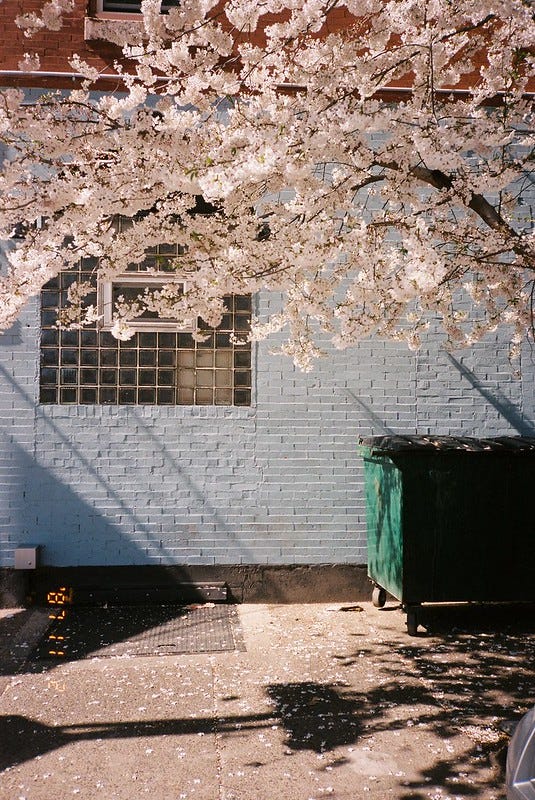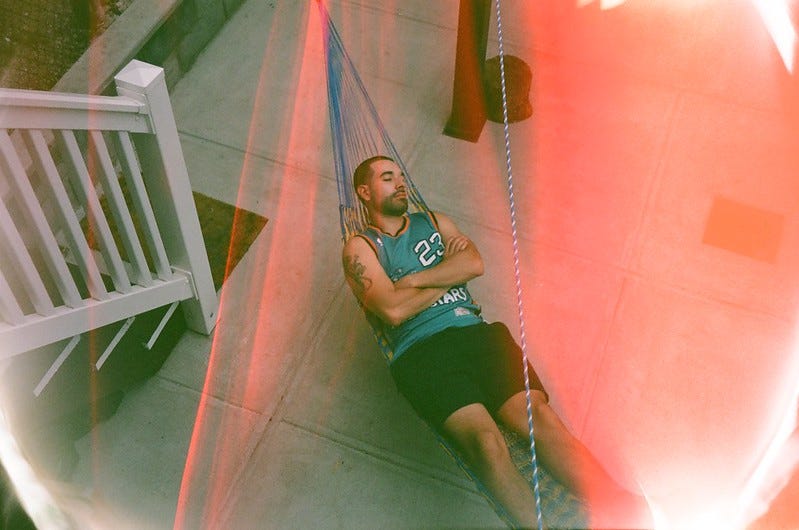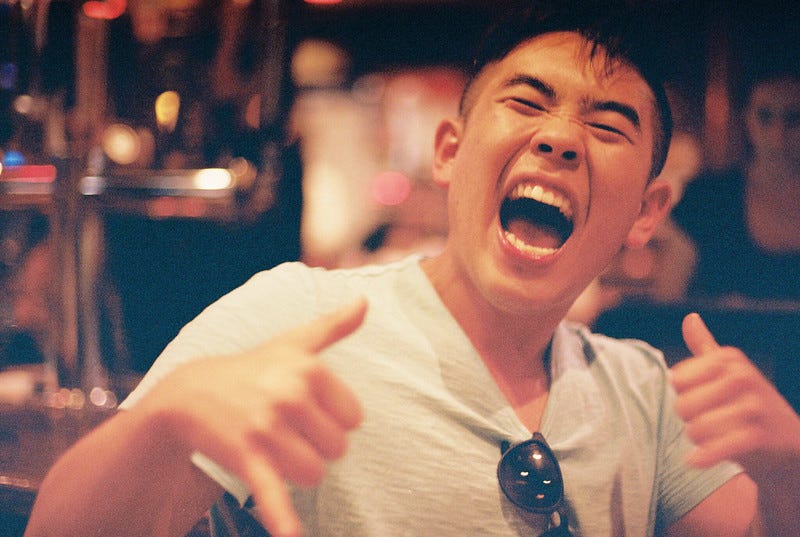Write no jutsu—or, reaching the other chamaquitos
Incorporating my experience with masculinity in my fiction
If I had to identify the best medium for reaching other young men, Millennial men, men in this interesting demographic of unpacking and grappling with the norms of their masculinity while, at the same time, buying into some of its principles…
I’d pick anime. I’d tap into the same moments that have fueled me, the same moments that have my friends hitting two-a-days in the gym while taking a moment to ask themselves to open up, to feel. Goku picking himself back up after taking a beating by Frieza, Buu. Rock Lee with the weights off. These moments tap into an almost primal, unshakeable sense among men who harness that inner child flexing in the mirror: these moments teach us that strength, our physical being as men, can save us with enough determination.
But that’s not true, is it? No matter how many times we scream, bench press two plates, and shirk off the griefs of life through another gym session, we can’t confront life’s obstacles through sheer strength, like the men in anime. My friends who live by the code of the Shinobi in Naruto no doubt find themselves perplexed by Naruto’s dependence on talk no jutsu, a term ascribed to his most overpowered ability: talking to his enemies. This ability—not his inner Nine Tails, not his shadow clones—lets him defeat Pain in the end.
For a long time, I’ve struggled with the balance of the dynamic set up in these animes and—to a greater extent—the accompanying implications of how men build themselves up. Guys like me find deep significance in the idea of strength as it pertains to our ability to protect our loved ones, to handle problems solo, to contribute to the world through the merit of our own (physical) abilities. As I’ve grown, I’ve struggled to ask for help. The feeling (as widespread as memes related to men not wanting to ask for directions) pertains less to my inability to accomplish a task as it does to the idea that my inability then spills into and affects others’ lives.
To quote Maes Hughes from Fullmetal Alchemist: Brotherhood:
Men are creatures who let their actions speak louder than their words. When they’re in pain, they don’t want to burden anyone else, if they can help it. They don’t want to make others worry, that’s why they don’t say anything.
An odd catch-22 arises out of this dynamic: if a man asks for help, he fundamentally chips away at the same reserve that fuels him. That is, the resistance to asking for help is what fuels him, powers him. The more alone he becomes, the stronger he feels—lone wolf, I got this, me dolo, la gente que te rodea no te dejan avanzar.
How have we normalized the spiral that buries men the more that they buy into it? How have we socialized ourselves into craving the scenarios—of fighting alone, of pulling ourselves back up in the last round of the match, of powering up in some Super Saiyan nod to an inner reserve that we have yet to tap—that end up defeating us?
Who here watches White Lotus? No spoilers: in the latest season, a family patriarch finds himself at a potentially life-altering junction in life. His whole family keeps asking him what’s wrong. Guess what he doesn’t do? Share with anyone.
How does that shit make sense? This couldn’t possibly be something someone like me buys into, right?
Well…
I’m embarrassed to say that, at some of my lowest points in life, I’ve craved…more. More of the low point, more of the weight on my back, a harder challenge from which I can later claim triumph. Shit was like loading up the plates on the squat rack and finding some energy in the suffering of the rep. Finding power in the shittiness of it. Finding strength in battling something, as if that was enough to compose my identity—as if I needed to buy into conflict as a way of adding depth to my character.
In the words of my friend, Jessica, writing on powerlifting:
In that moment, I am the only one who can lift the weight over or under me. It’s my responsibility to save myself.
Might this all also apply to…writing?
Yeah, I peeped AWP. I lurked in the back of the panels and hit some familiars with the head nod from across the book fair. I bought some books. Kicked back a few brews. Algo tranquilo. Nada serio. A lone thought continued to echo again and again, something that I felt ashamed to confess, much less express here in writing. What other models can I find for the type of writing I want to do? Is there space in the writing world for unpacking these ideas of masculinity? The type of writing that encapsulates friends like mine, attitudes like the aforementioned? Mind you, I have no interest in building some type of Pro-Male culture within fiction. I’ve read the essay on the Vanishing White Male in writing and have always felt dissonance with the messages portrayed here—one shared by an old poetry mentor of mine, who lamented the fact that his buddy seemingly lost teaching opportunities for simply being a “white guy.” I’m not interested in building some sort of meaning within my fiction through the portrayal of non-existent boogie man that stifles my writing.
Part of my writing explores this tension of characters buying into these attitudes and modes of masculinity and, then, resenting themselves for having bought into them.
Not that this Substack was ever about peddling my own shit, especially since I got nothing to peddle, but here’s an example from my novel. In this scene, the protagonist (Chris) is hanging out with a colleague from work when another friend stops by, using unsavory slang to describe women. Chris’s colleague pushes back.
“You ain’t gotta worry about our talk,” Matt says. He levels up with her, straightening up to exaggerate the difference in their heights. The effect is almost comical, I think, since Zelda is a small woman. But in this light, I sense that her boldness alone would best him.
“Why not? It has to do with me. You were just talking about me. If you can’t say it to my face, don’t say it at all.”
“Talking about you?” Matt has a look of disbelief, pointing at himself. “Listen, I don’t get involved in ya’s shit. I was just supporting my homie.”
“Chris, this is your friend?” Zelda turns to me, evaluating me anew.
I think battling with the problematic themes of my life is what resonates in my writing as genuine, authentic—meaningful, I hope, to readers, and not just men. I don’t think that men like my friends enjoy Naruto in spite of its talk no jutsu scenes, wondering why they insert long conversations in the midst of a knock-down, drag-out fight—no, I think my friends enjoy Naruto because of the talk no jutsu, because they want to explore other avenues of addressing issues and conflict beyond the parameters set for them by traditional masculinity.
Thanks for reading. Until next time.






Great post. I know right next to nothing about anime and thoroughly enjoyed this. Especially enjoyed the part about wanting more weights. Reaching that point where you find yourself asking (sometimes stupidly) — that’s all you got? I think there’s something primitive about overcoming a worthy opponent, whether it be an actual person or team, or some pilotless challenge.
One of the books in my current rotation is The Fight by Norman Mailer and it’s excellent (another Alex Muka rec). Reading about Foreman as a well-worthy opponent to Ali, decades before he was smiley and sold in-home grills is energizing in a way I wasn’t prepared for going in.
Knowing how the fight ends doesn’t take away from the accomplishment when the opponent is that formidable. When we conquer worthy opponents, the journey far surpasses the result.
Looking forward to reading more.
I used to romanticize struggles as the thing that would forge my truest strength and give me something interesting to write about. But when I actually started struggling with life things, I learned quickly there was nothing cute about it!
I think Marquez said that he could only ever write when he was at his healthiest and happiest and most boring and I’m actively inviting all three in my life now. Nice essay!